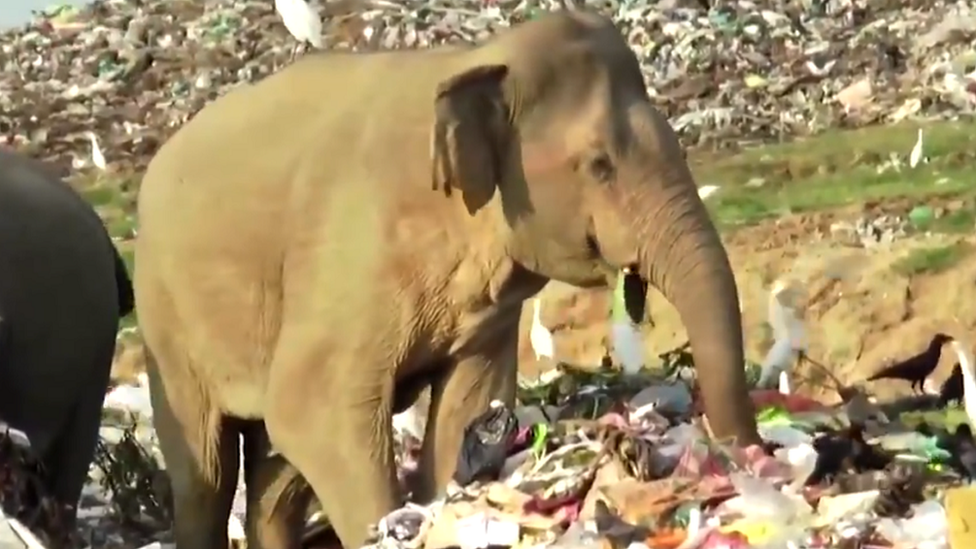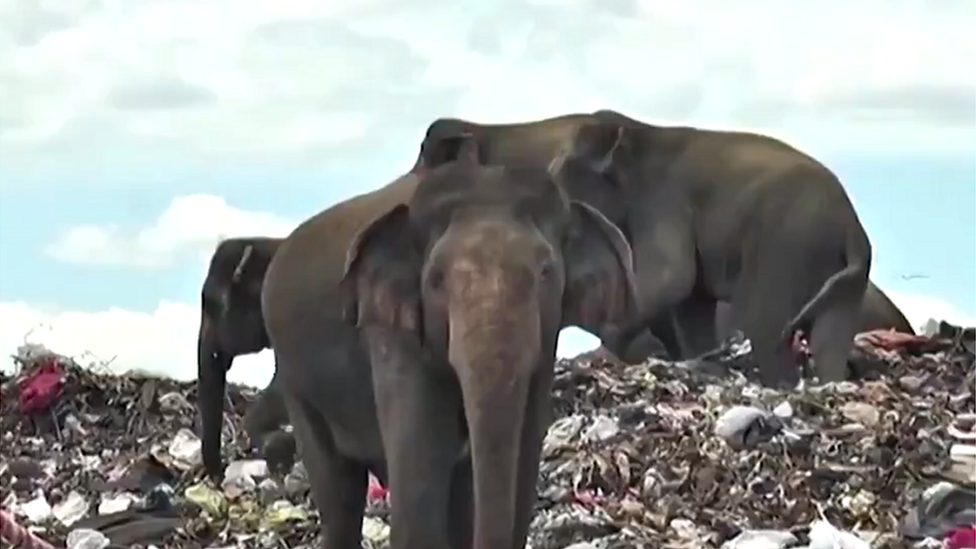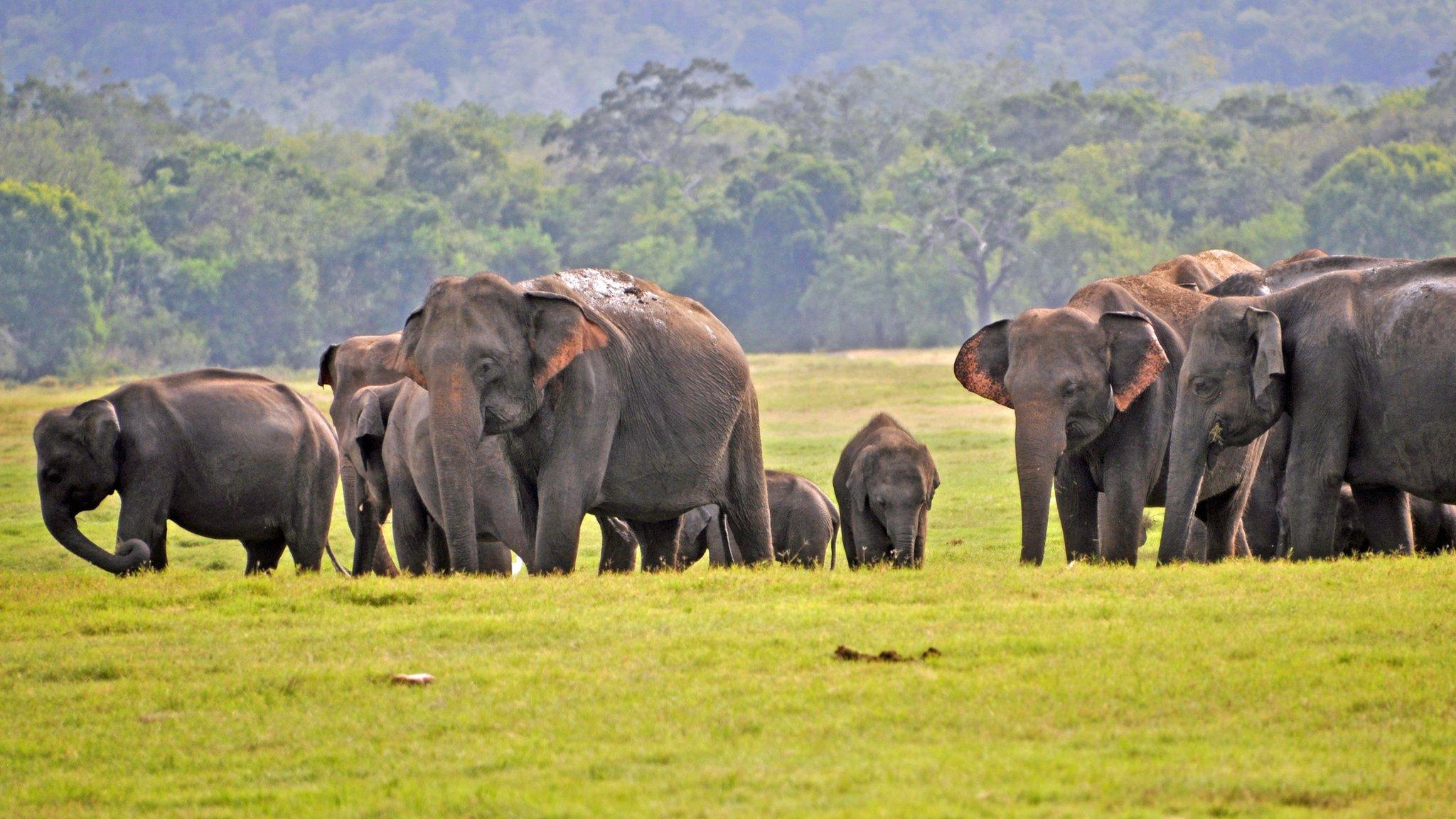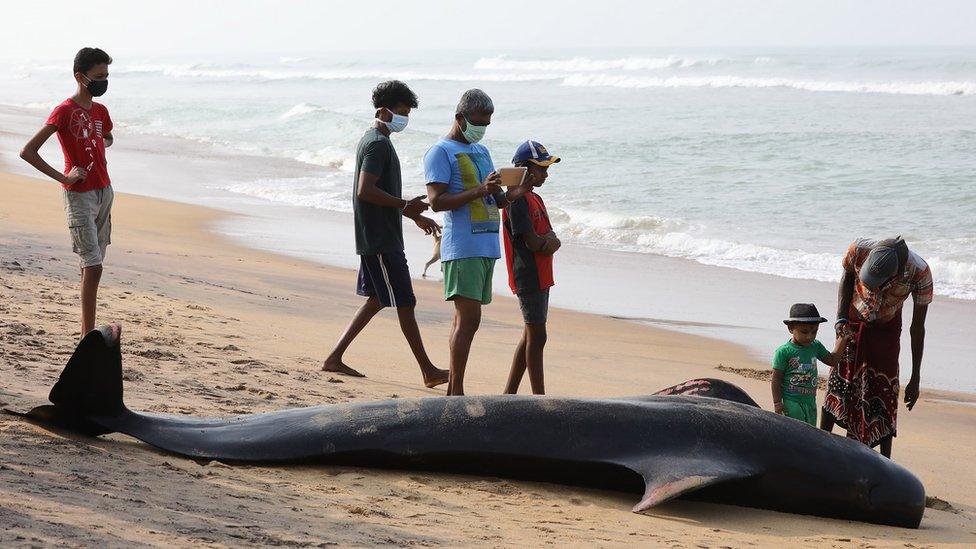Sri Lanka digs trench to keep elephants away from rubbish dump
- Published
Elephants scavenging in a rubbish dump near their wildlife sanctuary eat food, but also toxic plastic waste
A trench is being dug around a rubbish dump in Sri Lanka to deter elephants from scavenging for food among mounds of plastic waste.
Elephants regularly swarm to the landfill site near a wildlife sanctuary in the eastern town of Ampara.
Along with food scraps, they consume plastic, which slowly kills them, officials say.
Images of the elephants foraging through the waste in Ampara have shocked environmentalists.
Plastic from landfill sites is a known killer of wild elephants, which are estimated to number about 7,500 in Sri Lanka.
The landfill site in Ampara was created about a decade ago near a protected wildlife zone that is home to about 300 elephants.
The Sri Lankan government has sought to protect elephants and other wildlife by moving to ban the import of most plastic products.

In Ampara, electric fences were installed around the landfill site to keep elephants at bay.
But the fences did not work, prompting the government to dig a moat around landfill site instead.
Despite this, locals say they are sceptical of the government's plan to deal with the elephants.
"There is no proper plan or a system for this," said P H Kumara, a member of a local farming collective, told Reuters news agency.
A record number of elephants - 361 - died in Sri Lanka during 2019, according to environmental groups.
It was highest number of elephant deaths to be reported since Sri Lanka became independent in 1948, conservationists said. Most were killed by people.

Elephants often come into conflict with communities in Sri Lanka
Killing elephants is illegal in Sri Lanka. The animals are revered, but some farmers view them as pests.
In search of food, they often come into conflict with rural communities, like those in Ampara.
"The wild elephants that come to the landfill hang around here day and night," said Mr Kumara. "Then they go into neighbouring villages and harm the villagers, their property and agricultural land.
"The end result is that the human-elephant conflict gets worse and we lose elephants that are a national asset."

You may be interested in:
Wildlife officials rushed to help when the elephant was found trapped

- Published11 January 2020

- Published4 November 2020
